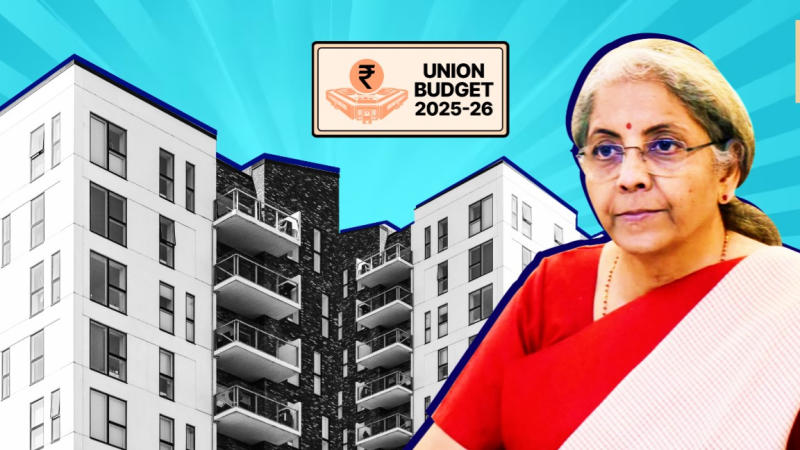Published 16:49 IST, January 9th 2025
Budget 2025 Expectations: Rs 3 Lakh Income Tax Deduction For Home Loans? Realty Sector Bets Big
India's real estate sector looks to Union Budget 2025 for crucial reforms, including tax incentives, affordable housing boosts, and liquidity solutions.

As the Union Budget 2025 approaches, India’s real estate sector is keenly awaiting key reforms, particularly an increase in the tax deduction limit under Section 80EEA. Currently set at Rs 1.5 lakh, stakeholders are advocating for the limit to be raised to Rs 3 lakh for first-time homebuyers.
“In particular, we would like to see an increase in the tax deduction available under Section 80EEA from the current Rs 1.5 lakh to at least Rs 3 lakh for first-home applicants,” Aman Gupta, Director of RPS Group, told Republic Business.
The sector is also pushing for government measures to boost affordable housing, enhance rental housing, and address long-standing demands, such as granting "industry" status to real estate.
Affordable housing
Experts also stressed the importance of tax holidays and input tax credit facilities for developers of affordable housing projects.
“Reducing GST to 1% for affordable housing and 3% for other under-construction properties will be a game-changer,” Gupta said. He further called for higher allocations under the Pradhan Mantri Awas Yojana (PMAY) and dedicated funds to ensure timely completion of stalled projects.
Experts also urged the government to increase the home loan interest deduction limit under Section 24(b) to Rs 4 lakh to provide relief to homebuyers.
Boosting rental housing
The rental housing segment also demands attention. Rajeev Mittal, Director of Motia Builders Group, said there is a need for a 10-year tax exemption for build-to-rent projects and a dedicated rental housing scheme similar to PMAY. “The government must revise the Model Tenancy Act to ensure fairness for both landlords and tenants, and allow tax-free rental income up to Rs 5 lakh annually,” Mittal said. He also advocated for public-private partnerships to increase the rental housing stock in urban centers.
Simplified frameworks for REITs
Liquidity concerns in real estate remain a pressing issue. Sandeep Mangla, Managing Director of Forteasia Realty, proposed creating a distressed asset fund of Rs 50,000 crore and liberalising external commercial borrowing (ECB) norms to ease financial pressures.
“We need streamlined Real Estate Investment Trusts (REITs) frameworks, including reducing holding periods from three years to one year, to attract retail investors. Tax certainty on REITs and InvITs is essential to draw global institutional investments,” Mangla added. He also called for single-window clearance for large-scale projects exceeding ₹500 crore.
Rising costs and affordable housing price caps
The rising costs of housing, especially in metropolitan areas, have rendered existing price caps for affordable housing inadequate. Piyush Bothra, Co-Founder & CFO of Square Yards, recommended revising the affordable housing price limit of Rs 45 lakh to better reflect urban realities. He also suggested extending tax benefits under Section 80C for REIT investments to enhance market participation.
Green buildings and urban infrastructure
Sector insiders stressed the need for incentives to promote green building initiatives. Badal Yagnik, CEO of Colliers India, said it's important to rationalise GST, have green building incentives, and public-private partnerships to drive urban infrastructure development and achieve the sector’s $1 trillion target by 2030.
Pushpamitra Das, Founder and Director of JUSTO, echoed similar sentiments, advocating for incentives for green buildings and the extension of SEZ benefits for commercial real estate.
Updated 16:49 IST, January 9th 2025